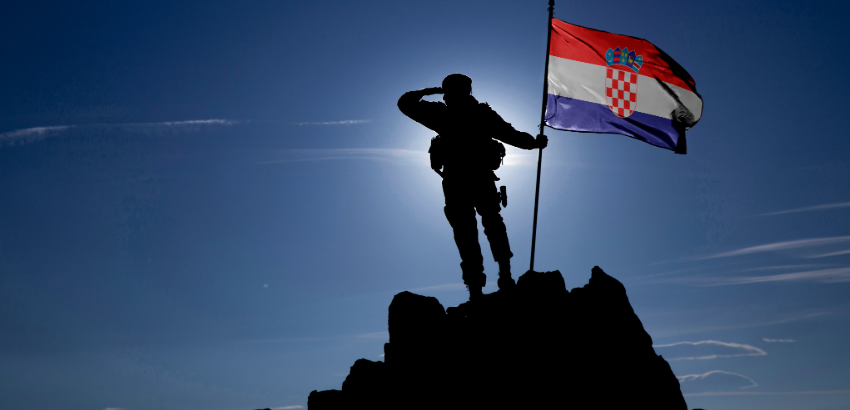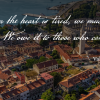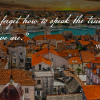
Published: February 10, 1998
View the Original Newsletter: Cirkular-5.pdf
About This Issue
The fifth issue of Cirkular is both a tribute and a turning point. It marks one year since the passing of founder Zvonimir Mekinda and carries forward his legacy through the devoted work of Valentina Krčmar and the small team that kept the newsletter alive. This issue weaves remembrance with optimism — honoring the past, celebrating Croatian achievements, and calling for unity and community participation.
Remembering Zvonimir Mekinda
Valentina Krčmar opens the issue with a heartfelt reflection on February 10, 1998 — one year since the sudden death of Cirkular’s founder, Ing. Zvonko Mekinda.
She shares an inside look at the immense effort required to publish each issue: researching, selecting and editing articles, preparing them for print, designing the layout, and distributing the finished copies across Toronto. She thanks Ing. Slavko Butković and Mr. Puhało for helping keep Cirkular in circulation and reflects on Mekinda’s tireless dedication to his homeland and his people.
Krčmar writes movingly:
“He proved his love for Croatia with every action. Though his Cirkulars were not perfect in design, their richness of thought and kindness are impossible to surpass. He remains forever in our hearts.”
The article closes with the reprinting of one of Mekinda’s own writings — a return to Croatia through his eyes.
Celebrating Sandra Bezic
The newsletter highlights a story from the March 1998 issue of Chatelaine Magazine about Sandra Bezic, daughter of Duško Bezic of Toronto. Once a Canadian pairs-skating champion with her brother Val, she is now recognized internationally as a choreographer for Olympic-level figure skaters.
Krčmar proudly congratulates Sandra and the entire Bezic family, emphasizing the accomplishments of Canadians of Croatian heritage on the world stage.
Strengthening Croatian Language Education
A central report covers the annual meeting of the Canadian-Croatian Congress (Toronto and area) and its commitment to promoting Croatian language instruction in Canadian universities.
In February 1998, the Congress hosted a successful banquet in Mississauga to raise funds for Croatian-language programs at the University of Toronto, where the subject was now officially listed as “Croatian,” rather than the former “Serbo-Croatian.”
Professor Jasna Šego, newly arrived from Croatia, teaches the program, while Professors Kenneth Lantz and Ralph Bogert of U of T’s Slavic Department were honored guests, along with Croatian Consul Ivan Picukarić and representatives of the Croatian community.
The article notes:
“For centuries attempts were made to destroy the Croatian language — and with it the Croatian nation. That is why it remains essential to teach Croatian wherever Croats live.”
Plans were also announced to expand Croatian-language courses to York University and McMaster University.
Community Programs and Opportunities
The Croatian Community Services section advertises free computer-training and career-support programs for adults, as well as financial-aid options for continuing education.
Readers are encouraged to subscribe to Cirkular ($30 per year, including postage) to support the publication of community news, culture, and world events.
Voices from the Diaspora
Two letters to the editor respond to a controversial Saturday Night Magazine article titled “Canadian Warlord” about Croatian Defence Minister Gojko Šušak.
Both letters, signed by the Canadian-Croatian Congress and community member Susan Carnovale, denounce the piece as unfair and biased. They argue that the war in the Balkans was not lit by Croats defending their homeland but by Slobodan Milošević and his regime. The writers urge Canadian media to recognize Croatian patriotism and sacrifice accurately.
Faith and Remembrance
Another feature marks the 38th anniversary of Cardinal Alojzije Stepinac’s death (February 10, 1960).
Valentina Krčmar recounts a touching homily by Fr. Josip Gjuran at Our Lady Queen of Croatia Parish in Toronto. He spoke of the Cardinal’s unwavering faith and the courage of those who suffered alongside him during communist persecution — especially Fr. Vraneković, who endured much and died young.
Krčmar notes how the church filled with emotion as Fr. Gjuran described their friendship, saying even through tears:
“Their courage built the Church, their suffering strengthened our faith.”
Rebuilding Vukovar
A formal letter from Croatia’s Ministry of Development and Reconstruction urges Croatian consulates and diaspora organizations to support the rebuilding of Vukovar by financing the restoration of public buildings, schools, and cultural institutions.
The ministry offers to coordinate projects and publicly recognize donor communities as contributors to Croatia’s renewal — a tangible way for Croatian-Canadians to participate in the nation’s healing.
Poetry and Art: Croatian Canadians in Words and Sketches
Inspired by Vlado Mekinda (Zvonimir’s brother), Cirkular introduces a new section called “Hrvatski Kanađani u riječi i crtežu” (“Croatian Canadians in Words and Sketches”).
The first piece, written by Vlado Mekinda, is a brief, powerful poem:
“Yesterday Luka from Srijem died
In the arms of Jure from Konavle,
Beside Štef from Zagorje
And Nikola from Buzet.
Four Croats — and one grenade.”
The section aims to showcase the creative voices of Croatian Canadians, keeping the community’s artistic spirit alive.
Health & Lifestyle
Dr. Darko Desatyi contributes another article on “Healthy Nutrition”, explaining the Mediterranean diet’s benefits — rich in vegetables, grains, and olive oil — and linking poor Western diets to heart disease.
He notes how traditional eating habits in southern Italy and along the Adriatic reflect the wisdom of moderation.
A recipe section follows, featuring a winter dish for “Cold-Weather Roasted Vegetables.”
Feature Story: Vukovar Through the Eyes of Ivo Jolić
The centerpiece article, written by Ing. Ivo Jolić, chronicles his January 1998 visit to Vukovar, just weeks after the city’s reintegration into Croatia.
He describes the devastation left by war — “ninety percent of houses destroyed, churches gutted, streets overgrown with thorns.” He recounts conversations with remaining Serbian families, some leaving for Serbia, and reflects on the heroism of Croatian defenders like Blago Zadro.
Jolić contrasts the ruins of Vukovar with the rebuilt village of Cerić, reborn “like a string of red gems under the Slavonian sun.”
His closing line is both a lament and a plea:
“Let part of these ruins remain as a monument — so our children will never forget how their parents defended the Beautiful Our Homeland.”
Croatian Athletes Shine in 1997
The newsletter proudly reports that 395 Croatian athletes won 173 medals in 27 international sports — including 49 gold, 51 silver, and 73 bronze.
It highlights boxing champion Željko Mavrović and skiers Janica Kostelić and Kristina Perica, marking a new era of Croatian sport success.
Editor’s Reflection: Seeing the Good
In her closing column (“Motrišta”), Krčmar abandons criticism for gratitude. She writes that the Croatian community often dwells on negatives — politics, rivalries, complaints — but she chooses instead to honor the many volunteers who give their time to build a vibrant diaspora.
“Instead of asking what isn’t working, let’s see how much good is being done by so many who expect nothing in return.”
She ends by thanking everyone who works without reward — priests, teachers, musicians, organizers — and calls their selfless spirit the heart of Croatian life in Canada.
In Summary
Cirkular No. 5 is a deeply human issue — a blend of memory, gratitude, and forward motion. Through Valentina Krčmar’s voice and the community’s letters, it keeps alive the values that Zvonimir Mekinda stood for: truth, service, and love for Croatia.
From the ruins of Vukovar to university classrooms in Toronto, it shows how a people once divided by war continue to heal through unity, culture, and faith.




